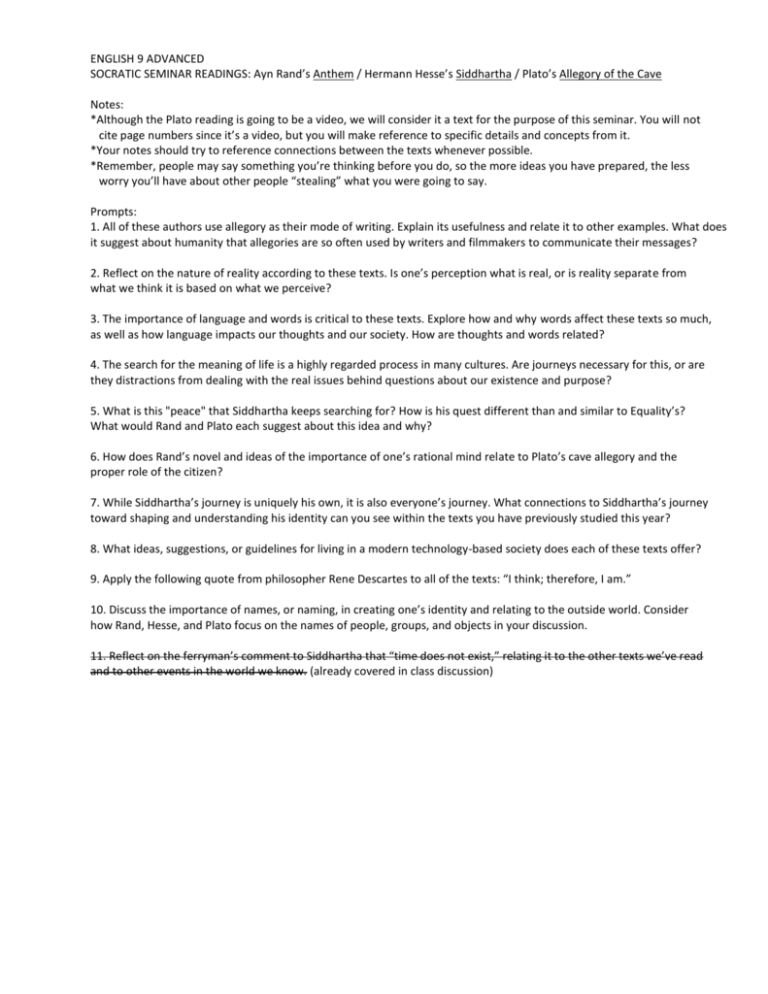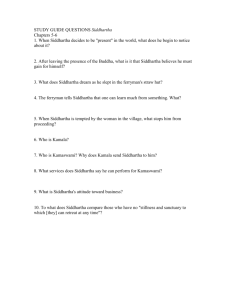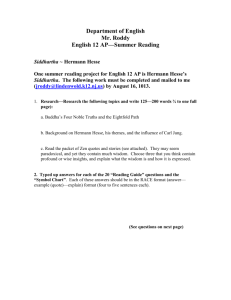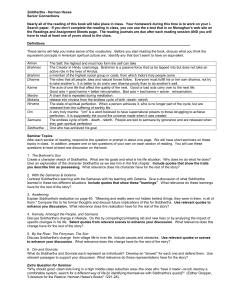SEMINAR Qs - Buckeye Valley
advertisement

ENGLISH 9 ADVANCED SOCRATIC SEMINAR READINGS: Ayn Rand’s Anthem / Hermann Hesse’s Siddhartha / Plato’s Allegory of the Cave Notes: *Although the Plato reading is going to be a video, we will consider it a text for the purpose of this seminar. You will not cite page numbers since it’s a video, but you will make reference to specific details and concepts from it. *Your notes should try to reference connections between the texts whenever possible. *Remember, people may say something you’re thinking before you do, so the more ideas you have prepared, the less worry you’ll have about other people “stealing” what you were going to say. Prompts: 1. All of these authors use allegory as their mode of writing. Explain its usefulness and relate it to other examples. What does it suggest about humanity that allegories are so often used by writers and filmmakers to communicate their messages? 2. Reflect on the nature of reality according to these texts. Is one’s perception what is real, or is reality separate from what we think it is based on what we perceive? 3. The importance of language and words is critical to these texts. Explore how and why words affect these texts so much, as well as how language impacts our thoughts and our society. How are thoughts and words related? 4. The search for the meaning of life is a highly regarded process in many cultures. Are journeys necessary for this, or are they distractions from dealing with the real issues behind questions about our existence and purpose? 5. What is this "peace" that Siddhartha keeps searching for? How is his quest different than and similar to Equality’s? What would Rand and Plato each suggest about this idea and why? 6. How does Rand’s novel and ideas of the importance of one’s rational mind relate to Plato’s cave allegory and the proper role of the citizen? 7. While Siddhartha’s journey is uniquely his own, it is also everyone’s journey. What connections to Siddhartha’s journey toward shaping and understanding his identity can you see within the texts you have previously studied this year? 8. What ideas, suggestions, or guidelines for living in a modern technology-based society does each of these texts offer? 9. Apply the following quote from philosopher Rene Descartes to all of the texts: “I think; therefore, I am.” 10. Discuss the importance of names, or naming, in creating one’s identity and relating to the outside world. Consider how Rand, Hesse, and Plato focus on the names of people, groups, and objects in your discussion. 11. Reflect on the ferryman’s comment to Siddhartha that “time does not exist,” relating it to the other texts we’ve read and to other events in the world we know. (already covered in class discussion)











